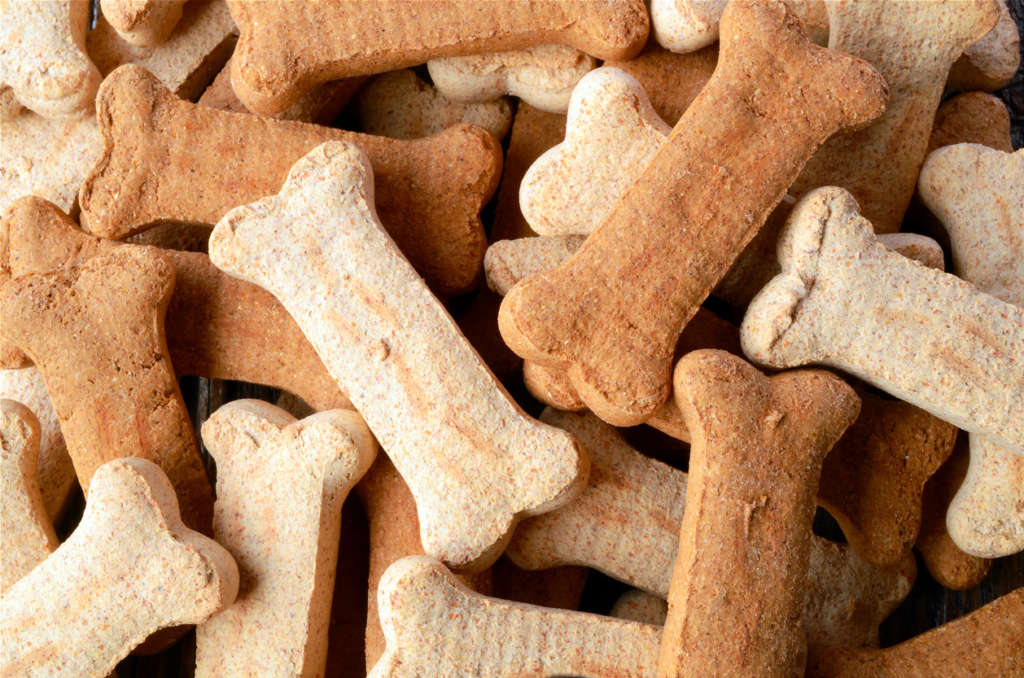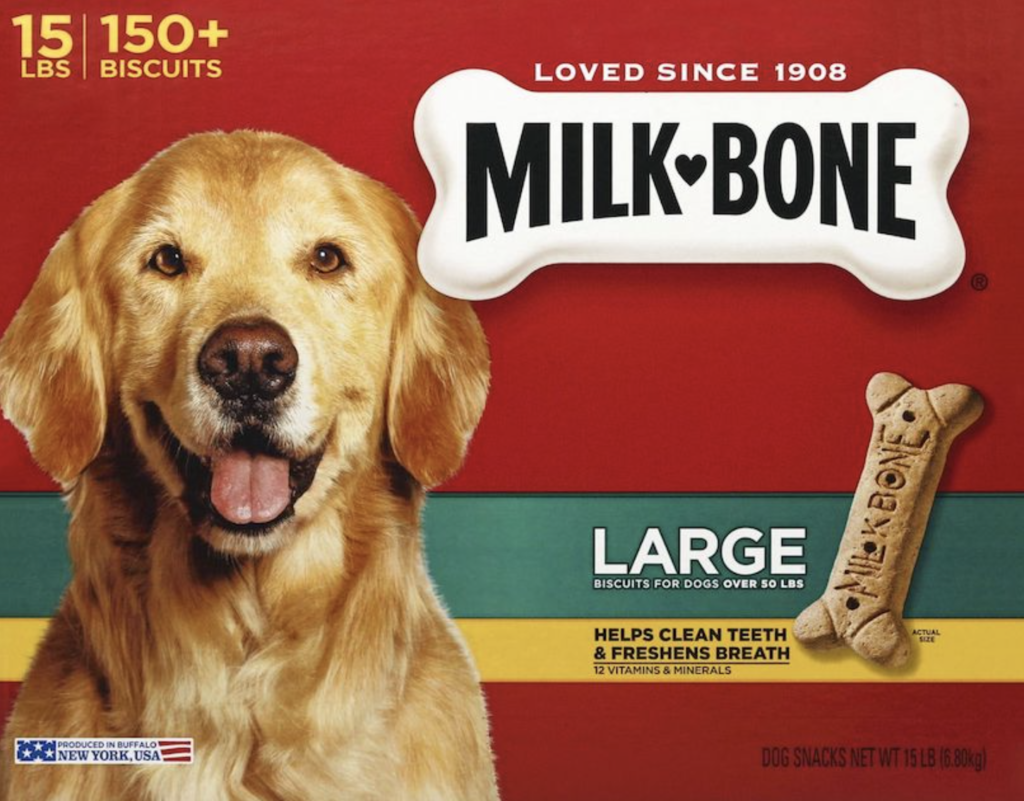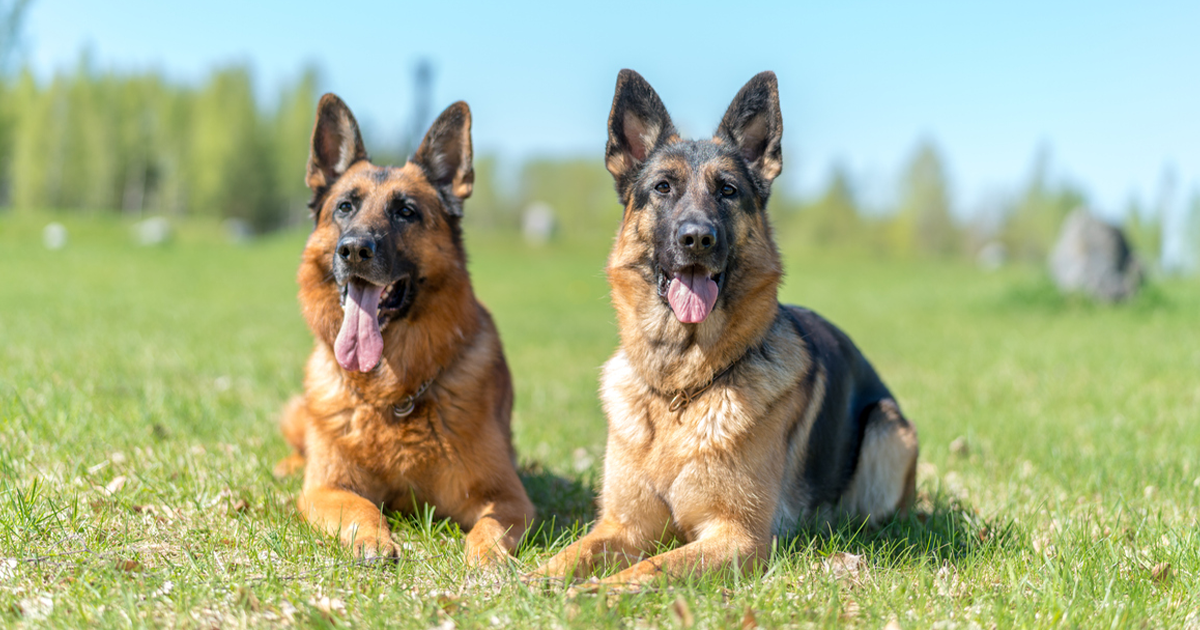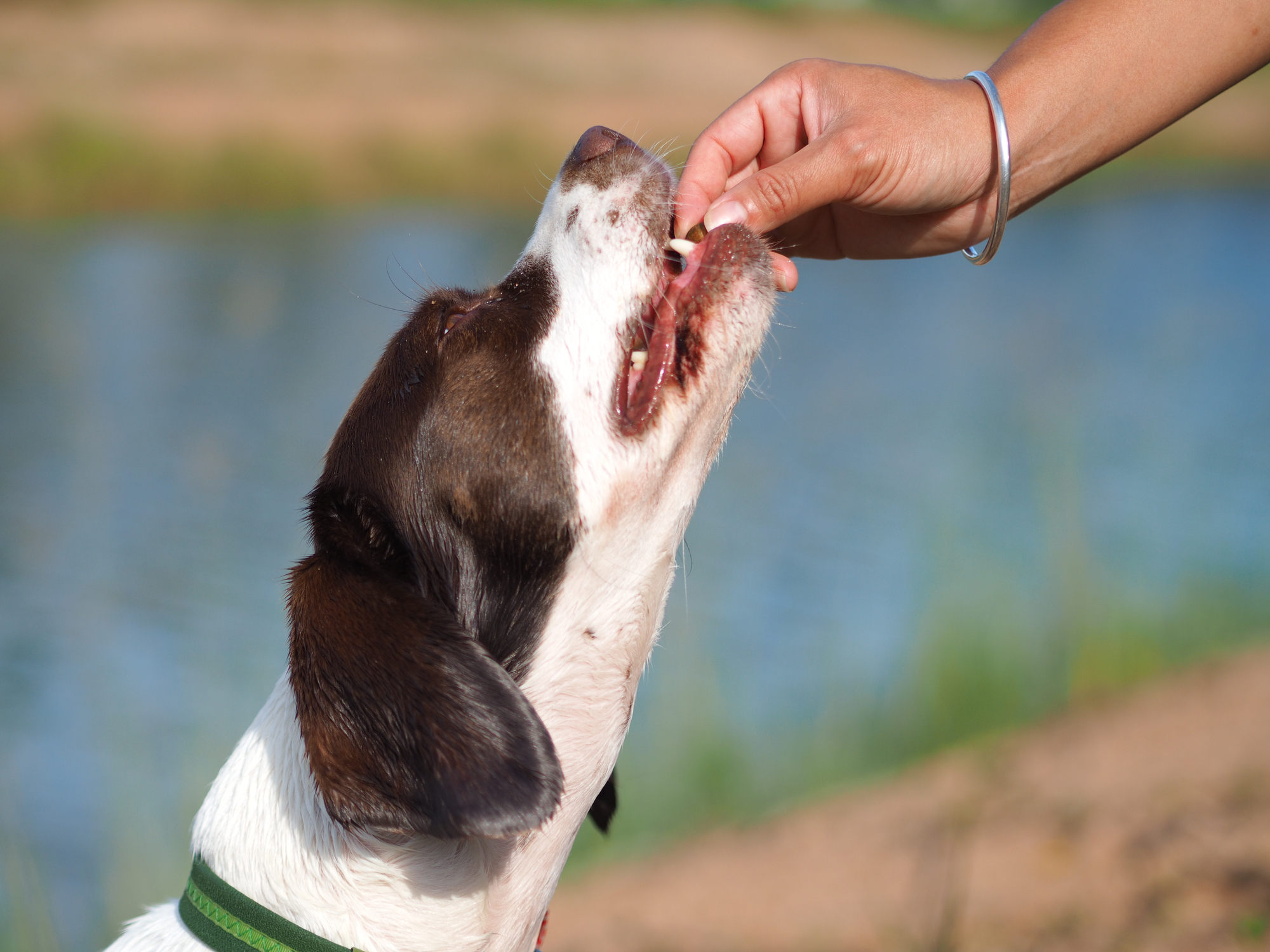Just like cats with fish and mice with cheese, dogs are often associated with bones. Though wild canines and their ancestors happily gnaw on bones, domesticated dogs have developed a taste for alternative bone-free treats.
One of the most well known examples of this is the Milk-Bone. Milk-Bones are crunchy, bone-shaped biscuits that are a staple in many dogs’ households. Their popularity cannot be denied, but are these biscuits healthy for dogs to eat?
What Are Milk-Bones?


Despite the name, Milk-Bones are not actual bones, nor are they made from them. Milk-Bones are bone-shaped dog biscuits made from minerals, meat products, and milk. The classic treats are dry and crunchy in texture, but a wide variety of options are now available.
Created in 1908, these classic treats have been making tails wag and tongues drool for over a century! Now there are a variety of bone-shaped biscuits available from many different suppliers, but Milk-Bone has remained a household name for dogs and dog people.
Are Milk-Bone Biscuits Bad For Dogs?
Who doesn’t love seeing their dog’s tail wag with a treat in hand? We love making our canine companions happy and, let’s face it, few things make dogs happier than treats. However, as the old adage goes, “everything in moderation.”


Milk-Bones are not meant to be the bulk of your dog’s regular diet. In general, treats should not make up more than 10% of their daily caloric intake. Milk-Bone recommends giving 1-3 biscuits per day, and also suggests feeding 1 biscuit per 33 pounds of your dog’s body weight as a more precise guideline.
If given in moderation (and if your dog is not allergic to the ingredients), Milk-Bone treats should not have adverse effects on your dog’s health, and even contain added vitamins and minerals.


Milk-Bone’s three main ingredients (wheat, beef, and milk) are generally not harmful to dogs in moderate quantities. However, dogs allergic to any of these ingredients may experience adverse reactions after consuming Milk-Bones, including but not limited to:
- Diarrhea
- Itching
- Licking or chewing feet
- Loss of appetite
- Shaking head
- Vomiting
- Swelling and hives
- Nausea and drooling
- Runny eyes and nose
- Anaphylactic shock
Since dogs cannot always “tell” us when they’re experiencing an allergic reaction, it’s important to be aware of common symptoms to spot when something’s wrong. Though adverse reactions from Milk-Bones are not common, it is always best to be prepared. In the occurrence of a reaction, be sure to contact your local veterinarian immediately for assistance.
The safety of Milk-Bones was once under great scrutiny. During this time, a rumor spread that Milk-Bones contained toxic preservatives that caused cancer in dogs. Thankfully, this rumor has been debunked and the Milk-Bone company confirmed that all their ingredients are canine-friendly.
Their website even notes the precautions Milk-Bone takes to ensure their products safety:
“We employ an approach above and beyond regulatory requirements and always look for ways to improve. And these same standards apply across all our facilities. Our products are made with nutritious, quality ingredients that meet the applicable standards and specifications of the U.S. Department of Agriculture (USDA), Association of American Feed Control Officials (AAFCO) and the Food & Drug Administration (FDA).”
Treat Alternatives To Milk-Bones
Though Milk-Bones are hugely popular treats, not every dog is smitten with them. For dogs with wheat allergies or various protein allergies, there are hundreds of choices to suit their exact needs.
BarkBox or Super Chewer subscriptions allow you to customize every bag of treats you receive (that’s 2 per month, plus two toys and a chew, for BarkBox, and 2 chews for Super Chewer) to ensure your dog and their tummy are happy. Every recipe contains only all-natural ingredients and never any wheat, corn, or soy.








